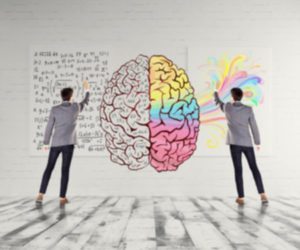Addiction Suppressing Brain Mechanisms

According to the Scripps Research Institute there are specific brain mechanics that suppress addiction to cocaine and alcohol. The Institute was given two research grants totaling just under $4 million, to fund research into brain mechanics involved with addiction. Nobuyoshi Suto, an assistant professor of molecular neuroscience will lead the team of researchers involved in the study. Working from previous research data, the team’s goal will be to identify and understand how relapse-suppressing brain mechanics work when specific stimuli is presented to addicts in recovery.
Past research has shown that specific stimuli can trigger a relapse in a recovering addict. Stimuli ranges from smelling and seeing alcohol or drugs, drug paraphernalia, names of people and places where the addict drank or did drugs, etc. Anything that invokes the memory of drug or alcohol use and its physical, mental and emotional effects on a recovering addict can trigger a relapse.
Research has also shown that there are other stimuli that the brain can receive to quell or reverse a relapse response. The difference between how the brain responds to both stimuli is that one opens the door to addiction and the other one closes it. By understanding how these brain mechanics function, new addiction treatments to prevent alcohol or drug abuse can be developed. The suppression of memories relating to addiction and the emotional challenges that accompany it are one step further toward controlling relapse response. If controlled stimuli can suppress or reverse addictive behavior, then a new addiction treatment has been discovered.
Addiction creates automatic behavioral responses to drug or alcohol cues. Internal moods and dialogue, environments and situations can all promote substance abuse. Some cues are psychological and can be conscious or unconscious. Cues can also be triggered by stress, mental disorders, chronic illness, grief, loneliness or just about anything that emotionally challenges a person. Internal or external stimuli act as cues for addiction just like the fight or flight response acts as a cue for survival. Some alcohol and drug addicts are more prone to relapse by the way their brain responds to the stimuli.
Cue-reactivity studies have been performed on people with addiction problems. Some cues are related to their specific addiction and some are non-related neutral cues. The addiction related cues showed an increase in cravings and autonomic responses such as skin temperature changes and an increased heart rate. This response to drug related stimuli is known as classical conditioning and promotes a reaction to relapse.
Nobuyoshi Suto has stated that most addiction interventions aimed at blocking relapse-promotion has proven to be ineffective. While working on research for compulsive cocaine use, Suto developed an “omission cue-induced suppression paradigm” (OCIS). Using laboratory rats for the research, Suto claims that preliminary results demonstrate that omission cues can help to suppress addictive cocaine seeking behavior. Suto believes that this behavior involves distinct neuronal ensembles within the reward center of the brain. Research continues using activated and inactivated neurons to study the neuronal ensembles of the medial prefrontal cortex. This type of research has never been conducted before and can offer great outcomes for future addiction treatment programs.
Suto’s research is consistent with the results of studies done with addicts. The addicts were shown images of drug use and told to suppress their cravings. The pre-frontal cortex is the area of the brain that is associated with the decision making process. Suto’s research suggests that omission cues activate the neurons in the pre-frontal cortex. The future of drug and alcohol addiction and addiction treatment programs may well be served by Suto’s research. Emotional challenges that promote addiction may also prove to be suppressed by Suto’s omission cues. Suto’s research shows great promise in controlling drug addiction and relapse behavior.
If you or a loved one needs help with abuse and/or treatment, please call the WhiteSands Treatment at (877) 855-3470. Our addiction specialists can assess your recovery needs and help you get the addiction treatment that provides the best chance for your long-term recovery.
